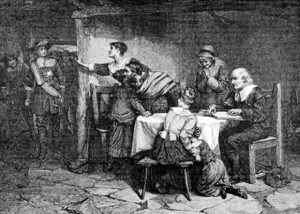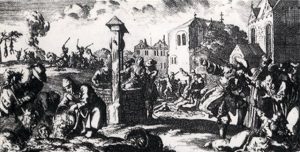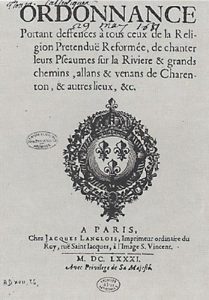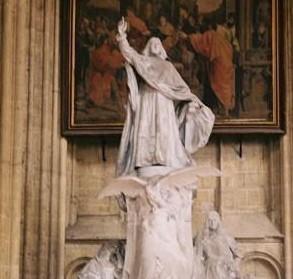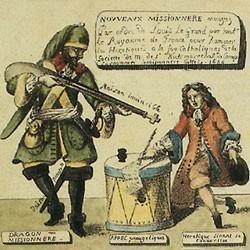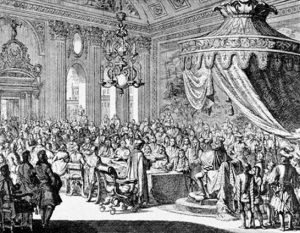Legal protests
The Reformed community claimed its full loyalty to the King. However, in order to resist when attacked, it resorted to various legal means.
The chairman of the Reformed churches made several requests to the King, asking that his council should rule out some of the decisions made by local parliaments, specially those of Toulouse and Guyenne. At times their requests were granted. Protestants individuals as well as communities file legal complaints with the courts. Some Protestant lawyers, such as Claude Brousson in Toulouse, achieve fame by defending the cause of the Reformation. They were partially successful, and thus delayed the process of breaking up the Reformed community.
When the ban on Reformed worship was enforced and freedom of conscience hampered, many Reformed Church members understood there was no future for them in the kingdom. They emigrated despite the ban to settle abroad. Such a ban was issued in 1669 and renewed in 1682.
The main hosting countries were Germany, England, The Netherlands and Switzerland.
The peaceful means of protests of Claude Brousson
The idea of setting up of an underground organisation of the Reformed Churches had been raised in the regions of the Cevennes, Dauphiné and Vivarais. Leaders appointed by regional synods had to take all necessary measures to maintain church services where they had been banned.
When in November 1682 the temple in Montpellier was condemned to be destroyed, two protest letters were sent off, one to the Parliament of Toulouse that had issued the sentence, and the other to the king. The two letters, most probably written by the lawyer Claude Brousson, had no success and the church was destroyed in December 1682.
Claude Brousson then tried to coordinate the resistance in the south
On the 3rd of May 1683, he gathered in Toulouse sixteen leaders representing the Upper and Lower Languedoc, the Cevennes, Vivarais, Dauphiné. They agreed on an eighteen-article project establishing duties subjects owed the king and such duties as believers had towards God. That is why he invited the members of the Reformed Church to gather on June 27 for worship in places where the latter had been forbidden. The meeting were to be held neither in a conspicuous way nor in secret. With such a large-scale peaceful demonstration all over France, they hoped to get the King to change his mind.
However, the districts of Guyenne, Saintonge and Poitou, as well as the larger cities in the Upper and Lower Languedoc, refused to join in. As the result of the doings of some Protestants, the quiet demonstration initiated in Toulouse turned into a riot. It was harshly repressed. To discredit it, the Catholics spread the rumour that the project had been devised with the help of Prince William of Orange.

